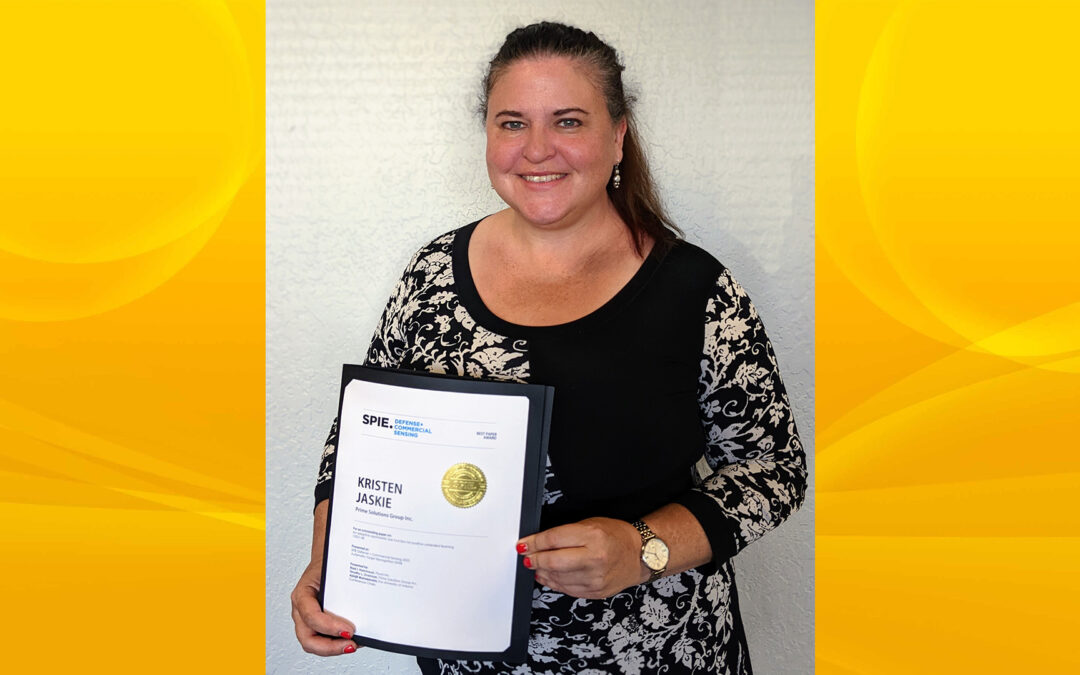Kristen Jaskie, ’21 PhD in electrical engineering, received a Best Paper Award from the 2023 SPIE Defense + Commercial Sensing conference for her research paper, “An Adaptive Asymmetric Loss Function for Positive Unlabeled Learning.” The research lays out a machine learning algorithm capable of making predictions from positive and unlabeled data.
Positive and unlabeled data includes two types: positive data that has a known quality to it, such as a gene known to influence the likelihood of a disease, and unlabeled data that has an unknown quality to it, such as a gene that isn’t known for sure to affect disease formation. Jaskie, a postdoctoral researcher in the Ira A. Fulton Schools of Engineering at Arizona State University and a principal machine learning research engineer at software and systems engineering firm Prime Solutions Group, sought to train a computer algorithm capable of predicting an outcome based on these data types with the goal to predict the likelihood of developing diseases.
“When data to train an algorithm is available, but some is labeled and some is not, the problem is called ‘semi-supervised classification,’” she says. “The positive unlabeled learning problem is semi-supervised, where the available labeled data is only from one of the two classes.”
The paper describes how to train artificial intelligence using a type of deep learning Jaskie dubbed the Adaptive Asymmetric Positive Unlabeled algorithm. Deep learning is a subset of machine learning in which artificial intelligence aims to replicate how a human would analyze data.
The research builds on the work she conducted as an ASU doctoral student, allowing her to continue her dissertation work. Assisting Jaskie in her research were her Prime Solutions Group colleague Nolan Vaughn, who will begin studying for his computer engineering doctoral degree at ASU in fall 2023, Lawrence Livermore National Laboratory postdoctoral researcher and 2023 ASU electrical engineering doctoral alumnus Vivek Narayanaswamy and ASU electrical engineering graduate student Sahba Zaare.
Prime Solutions Group sponsored the research, one of a variety of projects and students the company funds in the School of Electrical, Computer and Energy Engineering, part of the Fulton Schools, through the ASU Sensor, Signal and Information Processing Center’s industry consortium.
“I’ve worked on the research described by this paper for several years as part of my PhD program,” Jaskie says. “Now in industry, I am happy to see my work recognized by the community and to be able to share the exciting results we’ve been able to achieve.”
